Every summer, Hispanic migrant farmworkers travel to the Diocese of Yakima, Washington, with H-2A (seasonal worker) visas to cultivate and harvest the region’s bountiful crops.
Beginning with the cherry season, from mid-June through late July, migrants begin their labor-intensive workdays around 4 a.m., climbing ladders, harvesting bunches of cherries and placing them in pouches around their necks. As the growing season progresses, migrants work other crops, such as the famous Washington apples, which are sold around the globe.
Many of the 65,000 migrant workers, who travel to the region from their homes in Mexico and Guatemala with a seasonal worker visa, are Catholic.
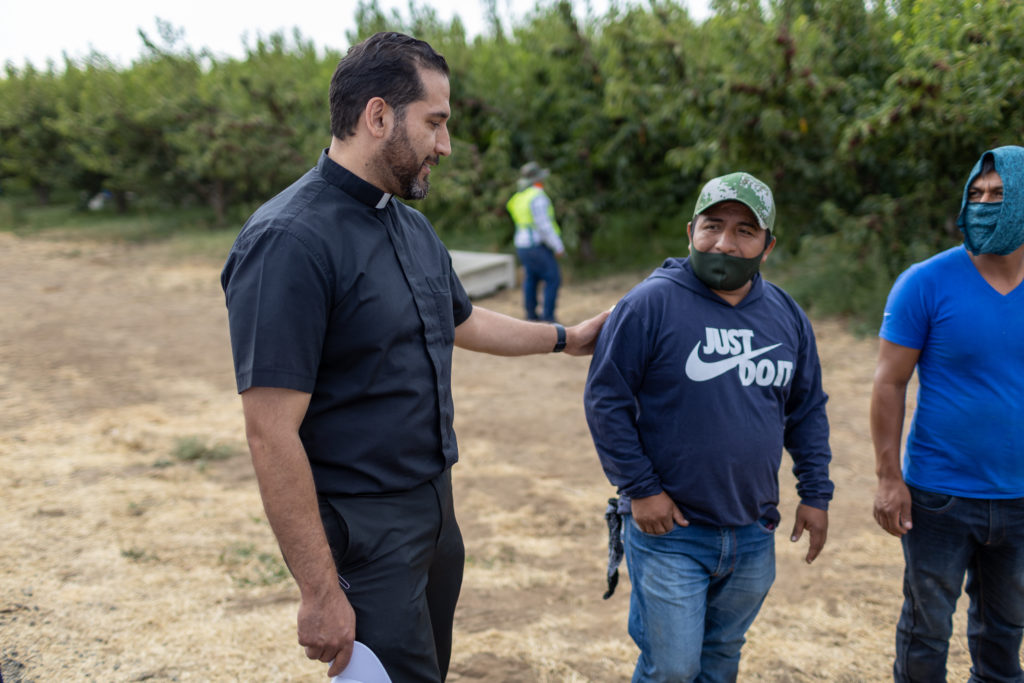
While the workers may be away from their home faith communities, they can still find the presence of the Catholic Church among them, especially through the Diocese of Yakima’s seminarians on their summer break.
In 2013 the Diocese of Yakima, under the leadership of Bishop Joseph Tyson, launched the seminarian migrant ministry program to enhance the priestly formation of its seminarians.
The program takes place during the summer and requires seminarians to visit migrant camps and work with local priests to celebrate Mass during the week where the migrants are temporarily housed for the summer. The seminarians also provide catechetical formation for those migrants who need sacramental preparation.
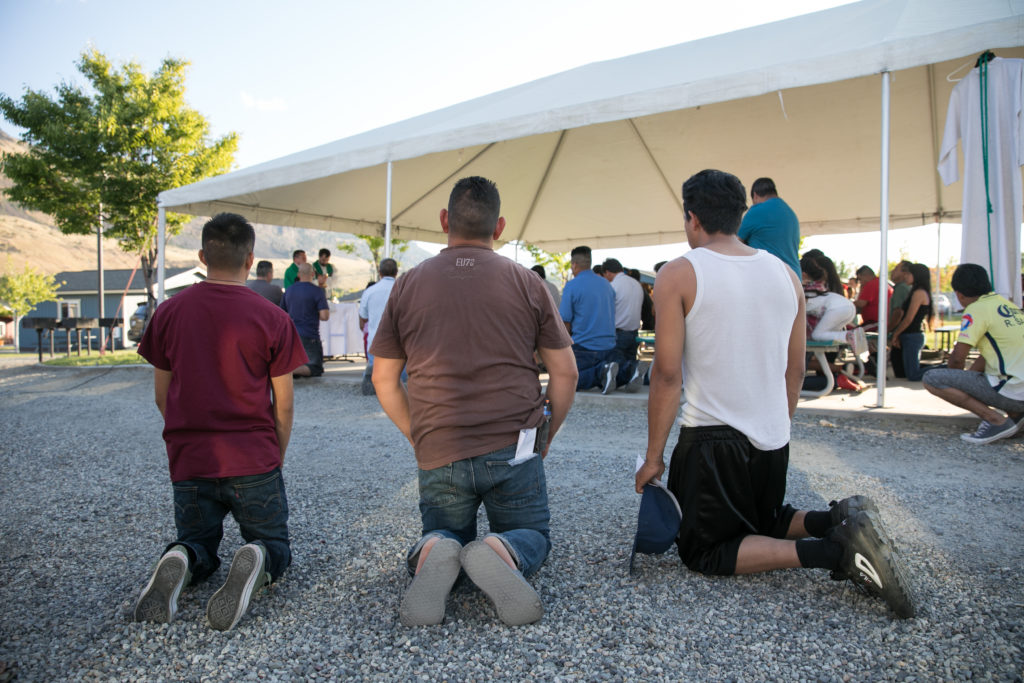
The seminarian migrant ministry traditionally involves the seminarians physically working in the fruit warehouses and orchards with the migrants. The seminarians have actually worked side-by-side with the people, developing relationships and dialogue and learning from those whom they will one day serve as priests.
The COVID-19 pandemic and new protocols restricting seminarians’ access to the fields and warehouses forced Bishop Tyson and the seminarians to find new, creative ways to be present to the migrants. So, instead of taking a step back from this ministry during the pandemic, the bishop and seminarians leaned into this program even more.
Bishop Tyson decided that he and the seminarians would continue this migrant ministry program by living among the migrants in their temporary summer housing. That way they could continue to serve them.
Present each day among migrant farmworkers
Despite the ongoing pandemic, the seminarians remain in solidarity with migrants by living with them in a former hotel in the Diocese of Yakima that has been converted for worker housing.
This has given the seminarians the chance to encounter the migrants every day as opposed to a few times a week. It has provided opportunities to offer several different ministries to the workers. This outreach ranges from Mass and catechesis in the evenings to simply waking with the migrants at 3 a.m. to greet them as they head out to the fields. They also welcome the migrants back home as they wearily return after a hard day’s work harvesting crops.
Bishop Tyson ensures that the seminarians still pray as much as they did when they lived in parish rectories during the summer. Only now, their schedule is adapted to the routine of the workers.
“It was an adaptation that allowed us to grow and have more exposure to them in a ministry context,” said seminarian John Washington, an Atlanta-area native who has ministered to migrants in Yakima for four summers.
Washington completed his first months of seminary formation in the Archdiocese of Atlanta but was drawn to seminarian migrant ministry in the Northwest after learning about the program from Yakima seminarians while together at the Mundelein Seminary in Illinois. Bishop Tyson took Washington in as an intern, and he has been serving in Yakima ever since.
Throughout the ongoing pandemic, Washington notes that workers have been hesitant to leave their residence. With migrants not leaving the worker housing to go to church, the ministry of Washington and his fellow seminarians became more essential than ever before.
Living in the same place as the workers and being available each day keeps the Catholic Church constantly present in the lives of the migrants amid the pandemic.
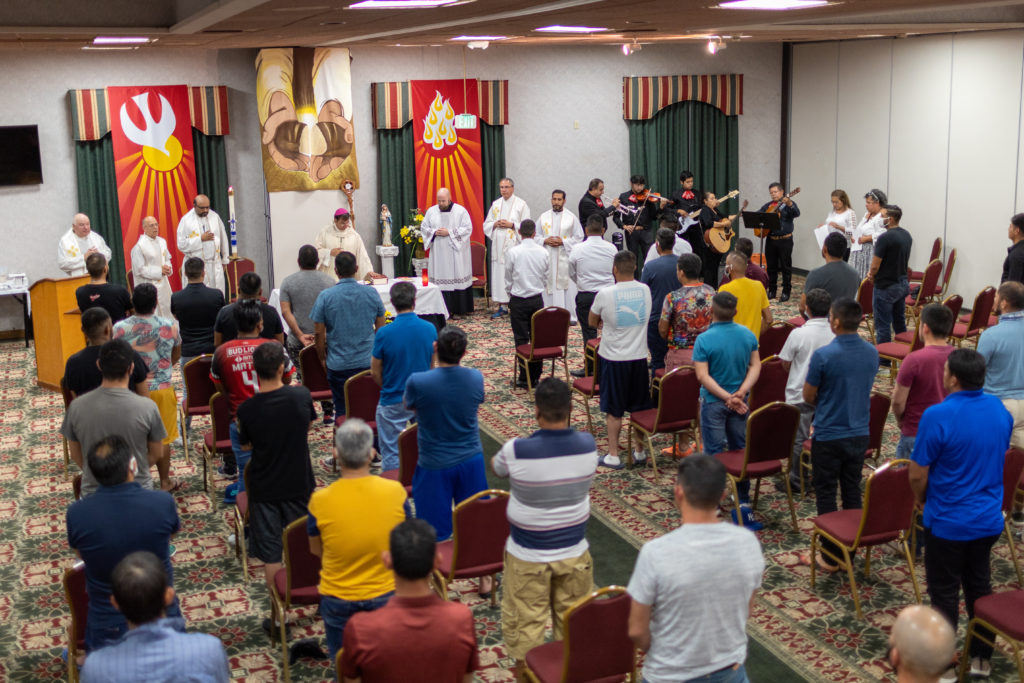
“It was another way we could offer them the solace of the Church and the solace of the sacraments, while also giving them reminders of home,” Washington explained. “A lot of them have a Catholic background, but there was no way they were going to be able to get to a local parish or reach out to local groups just because of the various restrictions. We were able to be with them in a more sustained way.”
Through their ministry at the worker housing, Washington and his fellow seminarians are showing the migrants that the Catholic Church is a community where no one is forgotten.
He wants all Catholics to remember this principle of the faith.
The workers are there. They are human, and they have spiritual needs. We’re working with people who so very often get overlooked, and they shouldn’t be.”
Bishop Tyson and the seminarians are making sure that, despite the challenges brought on by the pandemic, the migrants feel the Church is always a home and present to them during their time in Yakima.
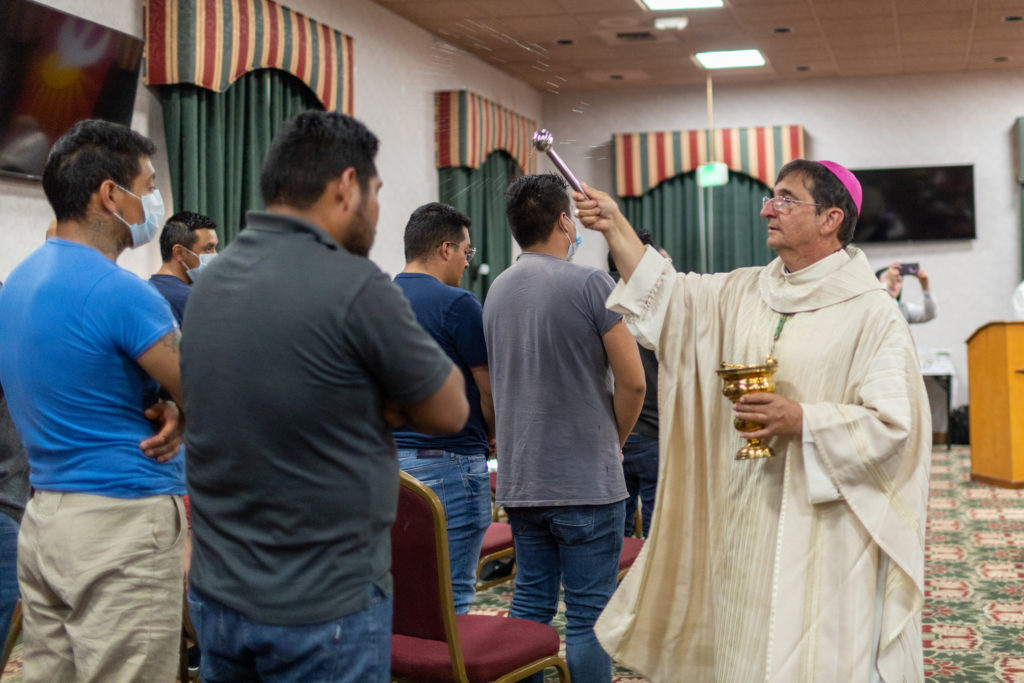
“If you feel you are on the margins, I want you to know, as your shepherd, that I see you as being at the very center of the Church,” said Bishop Tyson.
A formative experience for future priests
The seminarian migrant ministry program, supported by Catholic Extension Society, certainly addresses the spiritual needs of the migrants by bringing the Church and the sacraments directly to them. But the main beneficiaries of the program are arguably the seminarians themselves.
Washington continuously reminds himself of what Bishop Tyson has told him and his fellow seminarians throughout their formation:
“If you feel like you’re too good to raise a box of cherries above your head, you have no business lifting the body of Christ off the altar,” quoted Washington.
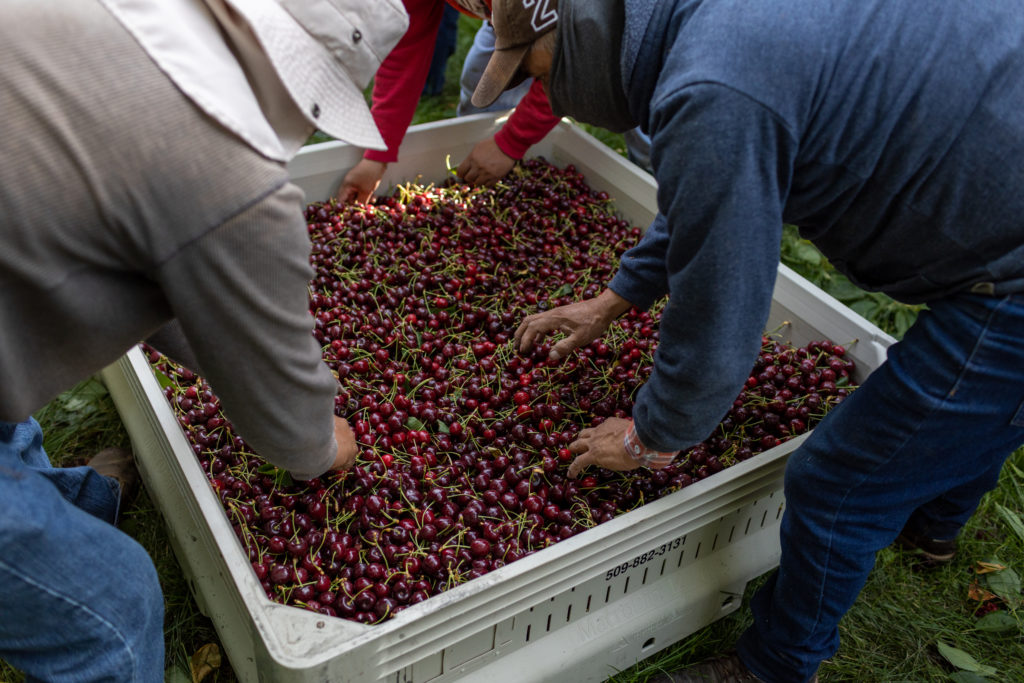
Washington recalls being amazed by the ministry to the migrants in Yakima from the beginning of his time in the program. “What a powerful witness that the Church wants to be with people regardless of where they’re at,” he said.
Washington continued,
“The migrants realize, ‘Oh, the Church is here with us even though we’re far from home. The one thing we were able to find when we got here was the Church, and the Church was here waiting for us.’”
Catholic Extension Society has supported seminarian education in the diocese for decades. Among those impacted by this unique formation program is Father Edgar Quiroga, ordained a priest in 2020, who echoed similar sentiments to those of Washington.
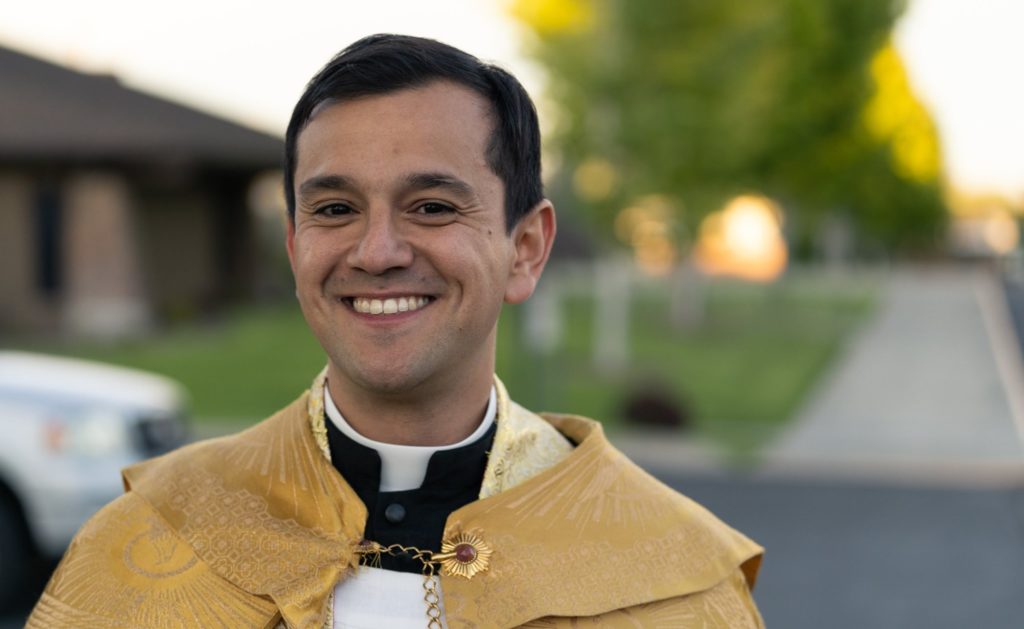
“We have the opportunity to see the migrant workers’ faces light up once we arrive because it is the Church who visits them,” said Father Quiroga. “It is meaningful for them to see that the Church cares about them and provides them with whom they need to be closer to: Jesus Christ.”
Father Jesús Mariscal, ordained in 2018, helped launch the migrant program as a seminarian, and is now supervising the program on behalf of the diocese. His mantra about the program has remained a constant pre- and post-ordination.
Speaking of the migrants he’s been blessed to know and serve as a seminarian and now as a priest, he said:
Their faith enlivens my faith.”
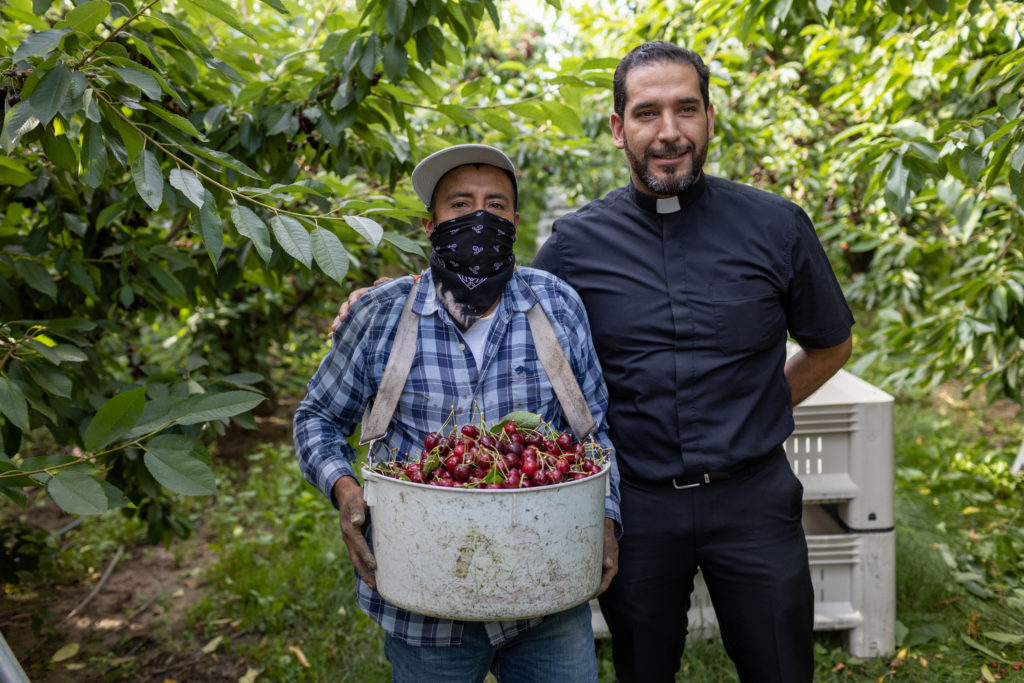
Father Mariscal joined Bishop Tyson and the seminarians on July 28, 2021, in the main meeting room of the migrants’ residence, where 100 farmworkers, after a long day of labor in the fields enduring temperatures above 100 degrees, gathered for an evening Mass to celebrate the confirmation and first Communion of three fellow migrant workers.
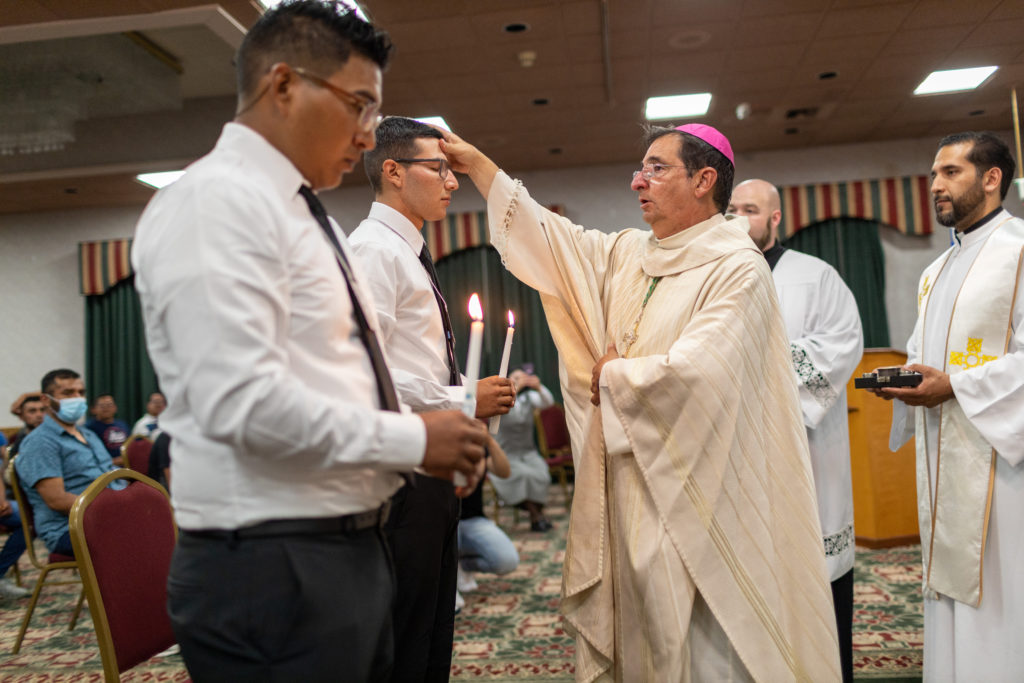
After the liturgy, they celebrated the occasion with cake and refreshments. Bishop Tyson reflected on the core lesson he wants his future priests to learn from these sacramental celebrations with migrant farmworkers: “These are our parishioners. If folks can’t come to Church, we come to them. So, this is an extension, really, of our parish ministry.”


